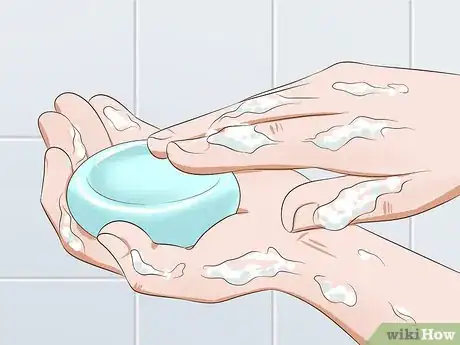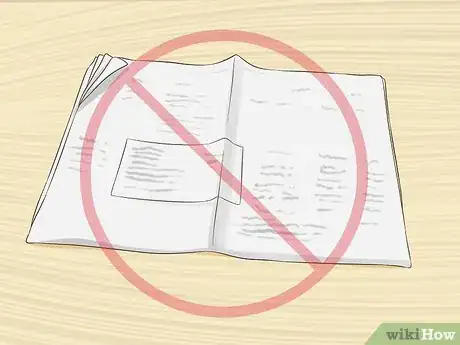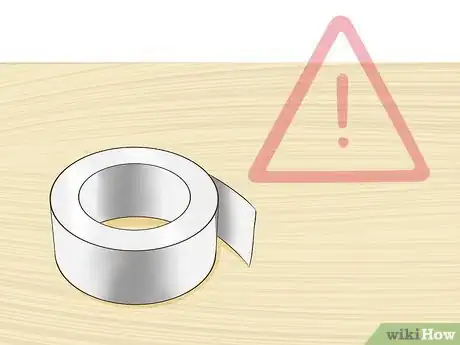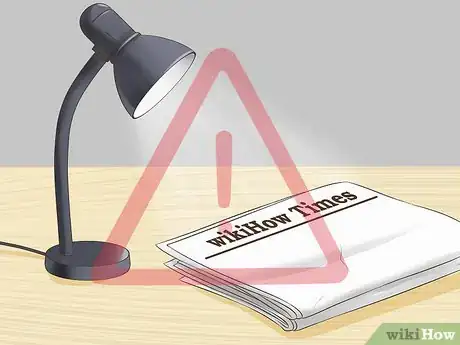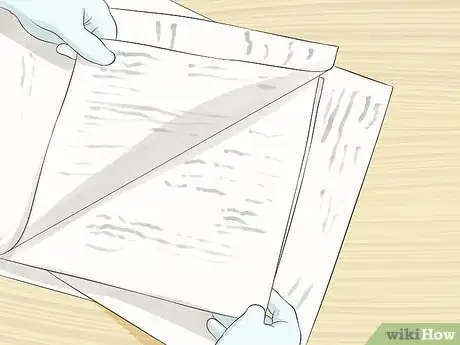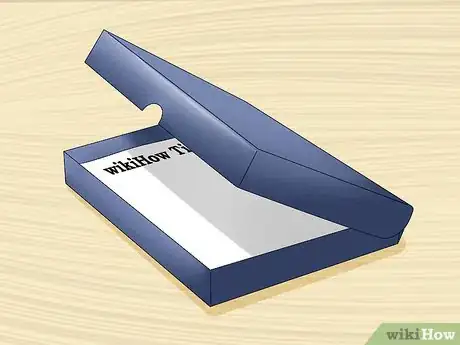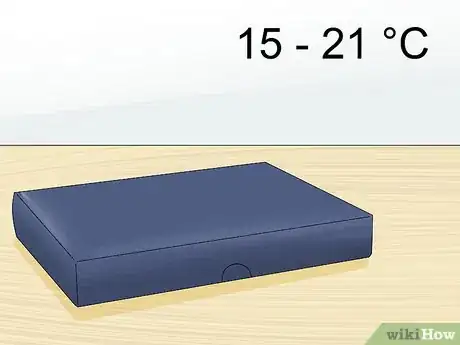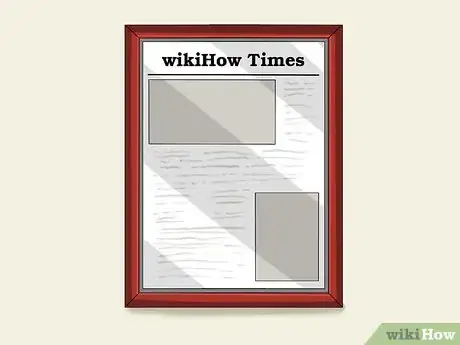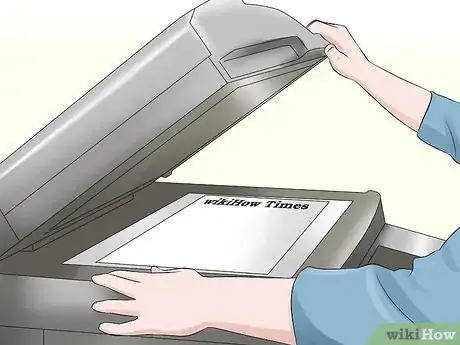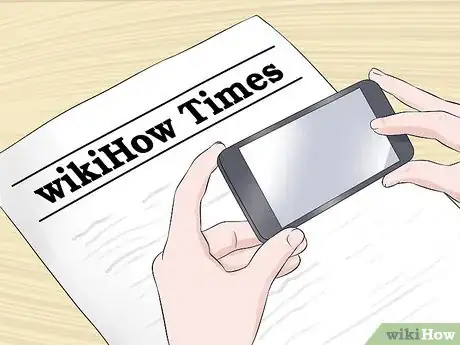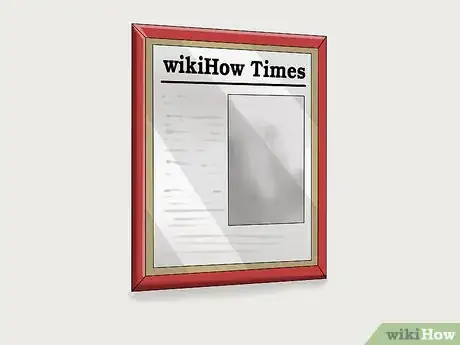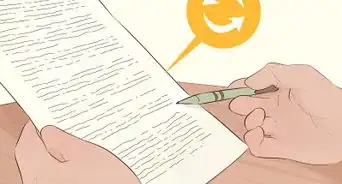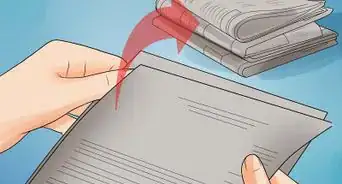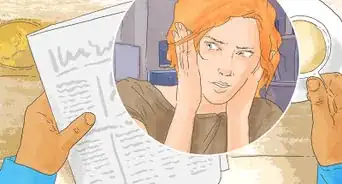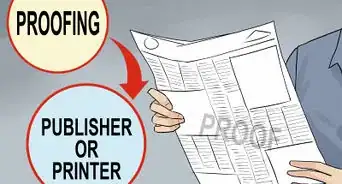This article was co-authored by wikiHow Staff. Our trained team of editors and researchers validate articles for accuracy and comprehensiveness. wikiHow's Content Management Team carefully monitors the work from our editorial staff to ensure that each article is backed by trusted research and meets our high quality standards.
There are 8 references cited in this article, which can be found at the bottom of the page.
wikiHow marks an article as reader-approved once it receives enough positive feedback. In this case, 92% of readers who voted found the article helpful, earning it our reader-approved status.
This article has been viewed 143,629 times.
Learn more...
Newspapers, as important historical documents, are favorites of both amateur and professional preservationists. Whether kept for personal reasons or to reflect monumental events – newspapers falsely declaring Truman's defeat by Dewey in 1948, for example, are valuable collector's items – they require great care and proper equipment in order to survive the test of time. Newspaper is made from wood pulp and has high levels of acidity; exposed to air or light, it tends to break down quickly. In order to preserve newspaper and keep it from falling apart, there are a few precautions to take if you want to store or display a newspaper.
Steps
Handling Newspapers Properly
-
1Keep the area clean. Handling delicate newspapers that you want to preserve requires a lot of care and extra precautions. This means washing your hands before touching the newspapers to remove any possibly damaging residue on your hands. You should also have a clean workspace – like a big, clean table – to use while handing the newspapers.[1]
- Make sure your hands are dry before touching the newspaper, especially if you just washed your hands.
- Keep food and drinks away from the area while you are working with the newspapers.
-
2Avoid folding the newspaper. When handling newspapers that you intend to preserve, try to never fold them except on their original middle crease. Keep the edges aligned neatly so that the center fold remains intact and other portions of the newspaper don’t get folded inadvertently.[2]
- Additionally, you should avoid folding the corners of newspapers, even in a dog ear fold to mark a certain passage, as this will further damage the newspaper.
Advertisement -
3Avoid contact with possibly damaging items. Newspapers are extremely fragile and can be permanently damaged by contact with most other surfaces or items that aren’t intended for use with newspaper conservation.[3]
- This includes paper clips, rubber bands, adhesive tape, or any kind of glue.
Protecting the Newspaper Pages
-
1Shield the newspaper from light. Light has an incredibly damaging effect on newspaper pages and the print that appears on them. Over time, prolonged exposure to light will cause a newspaper to become brittle and the content to fade.[4]
- Keep your precious newspapers out of light (both natural and artificial) whenever possible. Don’t store them in a bright rooms or leave them outside in the sun.
-
2Separate newspaper pages using acid-free paper. Because newsprint has lots of acid, keeping pages pressed together encourages acid to spread and break down the wood pulp fibers. Contact with any acidic materials can cause extensive damage to the pages, so you need to protect them by inserting acid free paper between each page.[5]
- Alkaline buffered tissue, available from conservation suppliers, is the best option for separating newspaper pages.
- A cheaper alternative is acid-free tissue paper which, while not preventing the spread of acid between pages, does reduce the risk of increasing the acidity of the newspaper.
-
3Consult a professional conservator. For especially valuable newspapers, it may be advisable to contract the services of a professional conservator. Conservators can remove acid from newspapers and provide top-notch storage equipment; their services, however, will likely run into the hundreds of dollars. Lists of available conservators can be found at the website of the American Institute of Conservation.[6]
- Additionally, there are products available for de-acidifying old documents, such as Archival Mist spray. However, unless your newspaper is very new, you should always consult a conservator before using such products, as you may unintentionally damage your newspaper in your effort to conserve it.
Storing a Preserved Newspaper
-
1Place the newspaper in a shallow, rigid box. You want to protect the newspaper from air, light, and pests. Newspaper-specific storage boxes are available from conservation suppliers and most craft stores; however, a simple cardboard or wooden box will do as long as it is acid-free.[7]
- Boxes and sleeves used for storing film are also appropriate.
-
2Store the newspaper in a dry, dark, cool area. To prevent the degradation of the newspaper material, you need to store it in an appropriate place. This means somewhere dark and cool with no humidity or moisture in the air. There should be no light, natural or otherwise.[8]
- Your newspaper storage area should be between 60 and 70 degrees Fahrenheit (or between 15 and 21 degree Celsius). Humidity should be between 40 and 50 percent.
- Places that fluctuate in temperature or acidity – like garages, basements, or attics – are not ideal.
-
3Display newspapers behind UV-resistant glass. If you wish to have the newspaper out of a box, consult a framer for the best type of glass and frame. You will want a backing board that is acid-free, and you will want your glass to block UV light. Remember that when you display newspapers you still need to keep them in dry, dark, cool places.
- If you are framing a newspaper clipping, mount it to an acid-free and lignin-free album page using acid-free and lignin-free paper photo corners. Using tape, glue, or paper that is not acid-free can cause damage to the clipping.[9]
Scanning or Copying Newspapers
-
1Scan newspapers. Another option for preserving newspapers is to use a scanner or copier to reproduce the document. Scanning allows you to create a digital copy of the newspaper that you can keep on your computer and then view digitally or make copies of it whenever you want. Copies made on regular printing paper will be more durable than the original newspaper itself.
- Make sure that you don’t run the newspaper through an automatic feeder as it could damage the original document. Instead, carefully place the newspaper on the top glass for scanning, being careful not to press down too hard on the cover.[10]
-
2Take digital photos of newspaper pages. In addition to scanning your newspaper, you can also preserve it by taking digital pictures of the newspaper pages. This will create a digital image that you can save on your electronic devices for future use.
- To do this, you can use a digital camera or even the camera on your smartphone.
-
3Use a copy of the newspaper for display. If you want to display your newspaper, consider using a printed photocopy for the actual display instead of the original. A photocopy, even one made on standard printing paper, will hold up better over time as it is exposed to the light and other elements.
- Then you can store the original newspaper in a storage box so that it will be preserved more safely.
Community Q&A
-
QuestionHow can I copy old brown newsprint to black and white?
 Community AnswerTake a digital picture of it or scan it, then use a photo-editing program to remove the "color" from the photo. The result is a nearly B&W image. Photos, built into Windows 10, has the capability. Load the picture of the newspaper you took, select Edit & Create, Filters, Vanilla. Then vary Enhance and Intensity to get the desired result.
Community AnswerTake a digital picture of it or scan it, then use a photo-editing program to remove the "color" from the photo. The result is a nearly B&W image. Photos, built into Windows 10, has the capability. Load the picture of the newspaper you took, select Edit & Create, Filters, Vanilla. Then vary Enhance and Intensity to get the desired result. -
QuestionCan you bind newspapers?
 Community AnswerBinding newspapers can potentially damage them - by cutting holes into them, accidentally ripping them, or even failing to protect them from the elements as well as a non-bound newspaper might be.
Community AnswerBinding newspapers can potentially damage them - by cutting holes into them, accidentally ripping them, or even failing to protect them from the elements as well as a non-bound newspaper might be. -
QuestionCan I laminate the newspaper?
 Community AnswerIt is not a good idea, as laminating tends to destroy newspaper. The paper is delicate and adhesives rip it with ease.
Community AnswerIt is not a good idea, as laminating tends to destroy newspaper. The paper is delicate and adhesives rip it with ease.
Warnings
- Do not attempt to repair tears or holes in your newspaper yourself. Consult a professional conservator for any maintenance work. Because of newspaper's fragility, it is possible to seriously damage the paper by introducing elements with high levels of acidity or other elements that might wear down the newspaper over time.⧼thumbs_response⧽
- Never laminate or apply tape to newspaper. Lamination degrades the newspaper's quality, while tape will destroy the newsprint. If you wish to make a newspaper easily available for handling while protecting it from air, light, and oils from the fingers and hands, place it behind glass.⧼thumbs_response⧽
- Take into consideration copyright if you scan newspapers. You could get sued by a newspaper if you release the files online without their permission. Fair use is allowed.⧼thumbs_response⧽
Things You'll Need
- Shallow, rigid box
- Acid-free tissue paper
- Dry, dark, cool space
References
- ↑ http://www.loc.gov/preservation/care/newspap.html
- ↑ http://www.mnhs.org/preserve/conservation/reports/nytimes_preserving.pdf
- ↑ http://www.loc.gov/preservation/care/newspap.html
- ↑ https://www.nedcc.org/free-resources/preservation-leaflets/2.-the-environment/2.4-protection-from-light-damage
- ↑ http://www.archivalmethods.com/blog/storing-old-newspapers/
- ↑ http://www.conservation-us.org/
- ↑ http://www.sfgate.com/news/article/How-to-preserve-your-Obama-victory-newspaper-3186243.php
- ↑ http://www.archives.gov/preservation/holdings-maintenance/newspaper.html
- ↑ http://siarchives.si.edu/services/forums/collections-care-guidelines-resources/how-do-i-preserve-my-newspaper
About This Article
To preserve newspaper, start by separating the pages with acid-free, alkaline buffered tissue paper to prevent damage. Next, place the newspaper in a shallow, rigid box to protect it from air, light, and pests. Then, store the boxed newspaper in a location free of humidity, moisture, heat, and light. If you want to display the newspaper, be sure to use a frame with an acid-free backing board and special glass to block out UV light. For tips on controlling a storage environment, read on!
